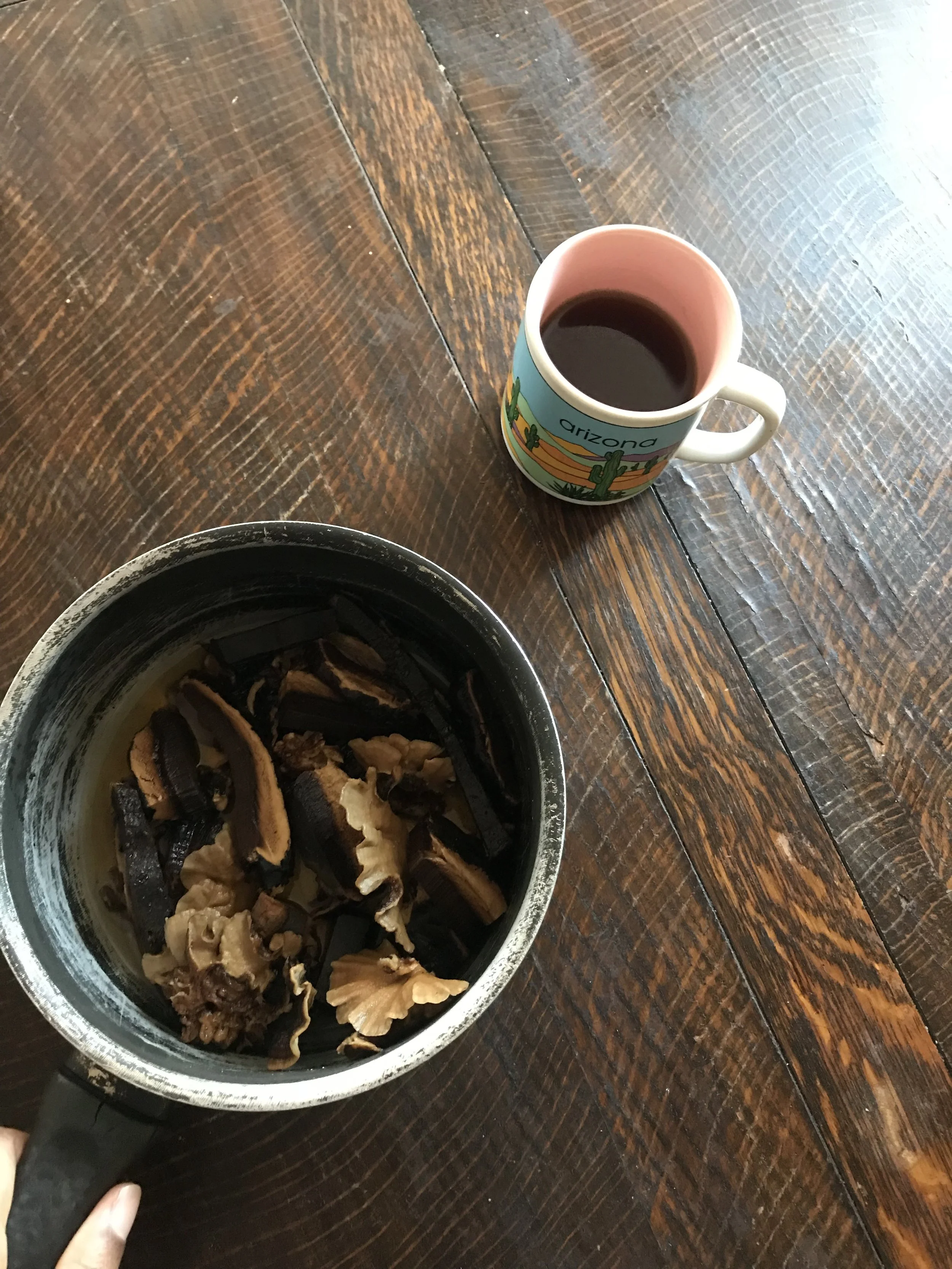What's in a Name?
Today I was saved from the potential fallout of over-caffeination—which for me is half a cup of green tea—and too little sleep by a decoction of Reishi (Latin: Ganoderma tsugae) and Turkey Tail (Trametes versicolor) mushroom. I also took two dropperfuls of a Bacopa (Bacopa monnieri), Ashwagandha (Withania somnifera) and Rosemary (Rosmarinus officinalis) cognitive function tincture that I’ve been tweaking.
I remember a passage from Barbara Ehrenreich and Deirdre English’s 1973 “Witches, Midwives and Nurses: A History of Women Healers,” where the authors talk about the danger that medieval healers—witches—posed to the Catholic Church. These women plant workers had the audacity to rely upon observation through their senses, a commitment to trial and error and on cause and effect to test out the effectiveness of their remedies. Whereas the church believed that illness was some working of the devil which could only be rooted out by a man ordained by God to do His work. Or perhaps some punishment of God’s meted out, for reasons unknown. The body and its senses were the terrain of the devil; how dare these women actively use the power of reason? Deduce truths? Those were the domain of God and the Church. These women had to be eliminated. Ehrenreich and English say:
In the persecution of the witch, the anti-empiricist and the misogynist, anti-sexual obsessions of the Church coincide: empiricism and sexuality both represent a surrender to the senses, a betrayal of faith. The witch was a triple threat to the Church: She was a woman, and not ashamed of it. She appeared to be a part of an organized underground of peasant women. She was a healer whose practice was based on empirical study. In the face of the repressive fatalism of Christianity, she held out hope of change in this world.
For me the word “witch” often brings up feelings of detachment, as the term feels deeply connected to a history of European folk healers who transgressed Church and state distant from my own lineage. And every person I knew who identified with the word growing up had white skin. However, if I think more broadly about all of the people who have carried healing knowledge, have transgressed patriarchal norms, empowered women via herbs that brought on contractions and the menses, and meant reproductive freedom, I see “witch” as just another name for those who helped to make the path that I now walk.
My people had their plant wisdom stolen away. They also moved from the country to cities in search of work and believing it to be countrified, willingly lost what plant knowledge was left. In taking my herbs I call upon the powers of all femme healers throughout history. In working with people to find their herbal allies I join my sisters across various times and spaces to support the “organized underground of peasant women” who dare to experience pleasure and wellness in the face of forces that seek our elimination.
This one will not be burned at the stake!


